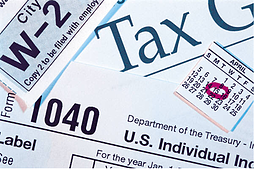If you have settled a debt or had a debt, you may receive an IRS Form 1099-C. This doesn't necessarily mean that you will have to pay additional tax on the amount "forgiven". Here's what you need to do:
The 1099-C has Instructions for Debtor:You received this form because a Federal Government agency or an applicable financial entity (a lender) has discharged (canceled or forgiven) a debt you owed, or because an identifiable event has occurred that either is or is deemed to be a discharge of a debt of $600 or more. If a creditor has discharged a debt you owed, you are required to include the discharged amount in your income, even if it is less that $600, on the "Other income" line on your Form 1040.
However, YOU MAY NOT HAVE TO INCLUDE ALL OF THE CANCELED DEBT IN YOUR INCOME (capitalization mine!). There are EXCEPTIONS AND EXCLUSIONS, such as BANKRUPTCY or INSOLVENCY see Pub. 4681...for more details.
Most people who have had debts settled (forgiven) have gone through a very hard time, financially. And, most people who have had debts settled would fall into the catagory of INSOLVENCY, according to the IRS and several publications.
The bottom line is, if AT THE TIME OF SETTLEMENT your liabilites were greater than your assets, you were insolvent and therefore the amount of debt forgiven would be excluded.
We have helped hunderds of our clients to become DEBT FREE through DEBT SETTLEMENT, but we also have assisted them in AVOIDING (or paying very little) ADDITIONAL TAX after receiving a 1099-C.
We have put together a complete 1099-C Kit that will show you (and/or your tax preparer) how to fill out and file the proper forms.




 If you have received a 1099-C, DON'T PAY THE ADDITIONAL TAX until you know your rights!
If you have received a 1099-C, DON'T PAY THE ADDITIONAL TAX until you know your rights!
 Is it possible to negotiate student loans?
Is it possible to negotiate student loans? 

 Mortgage Forgiveness Debt Relief Act
Mortgage Forgiveness Debt Relief Act What is a 1099-C?
What is a 1099-C?

